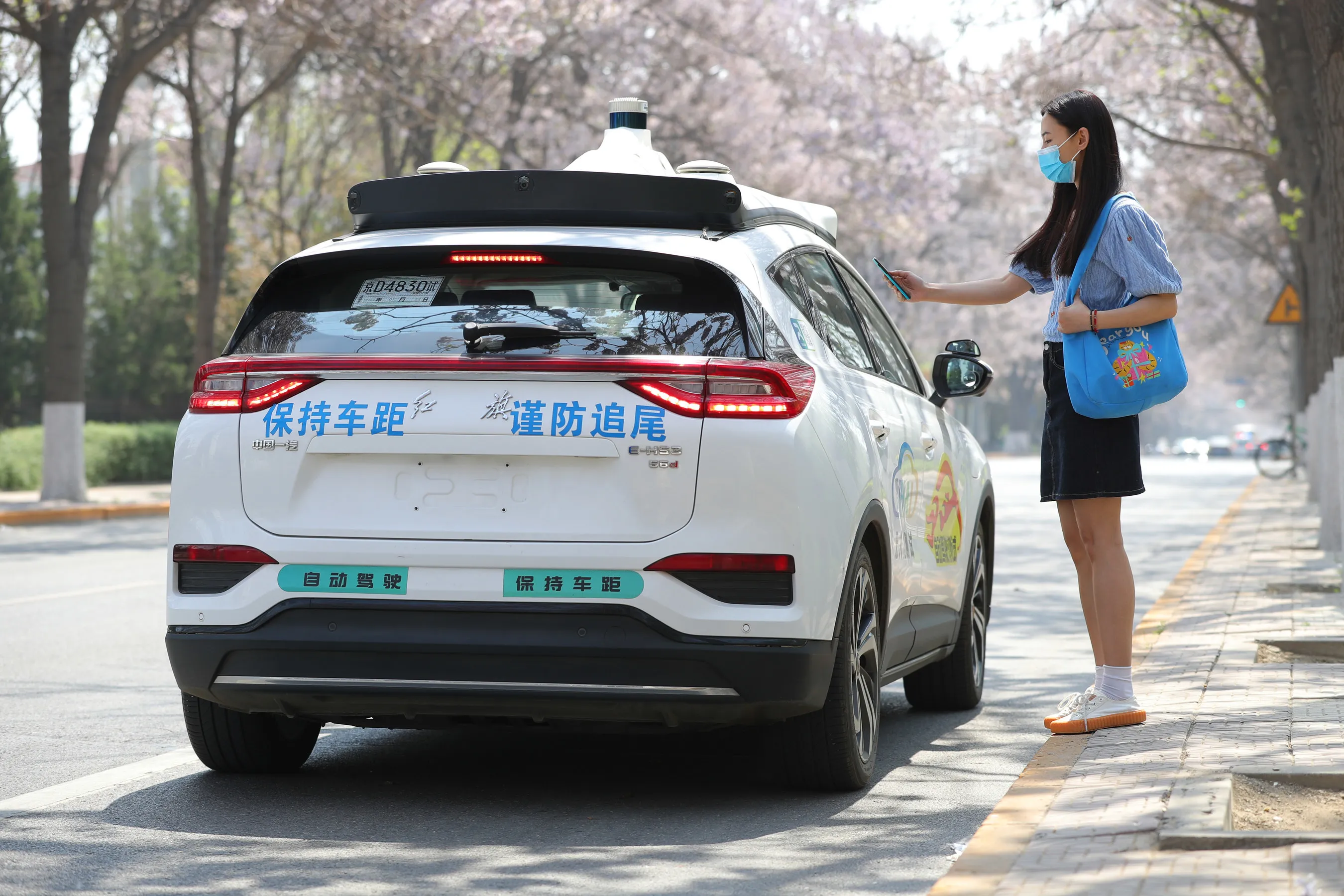
Baidu has received the first permits in China which means it can now provide driverless ride-hailing services - in daylight hours - to the public on open roads in Beijing.
This regulatory approval means 10 autonomous vehicles without drivers behind the steering wheel can offer rides to passengers in a designated area of 60km2 in the Chinese capital.
These AVs join an existing fleet provided by Apollo Go, Baidu's autonomous ride-hailing service, and can be hailed via the Apollo Go app from 10am to 4pm.
Baidu has the largest autonomous driving fleet in China and plans to add another 30 vehicles.
The new permit means it has progressed from the manned autonomous driving stage to purely driverless - something the company puts down to a track record of road testing, which it says has seen zero traffic accidents over 16 million miles, in cities across China and in California, US.
In September 2020, Baidu became the first company in Beijing to offer autonomous ride-hailing services and Apollo Go has expanded to eight other cities in China since its launch: Shanghai, Shenzhen, Guangzhou), Chongqing, Changsha, Cangzhou, Yangquan and Wuzhen.








